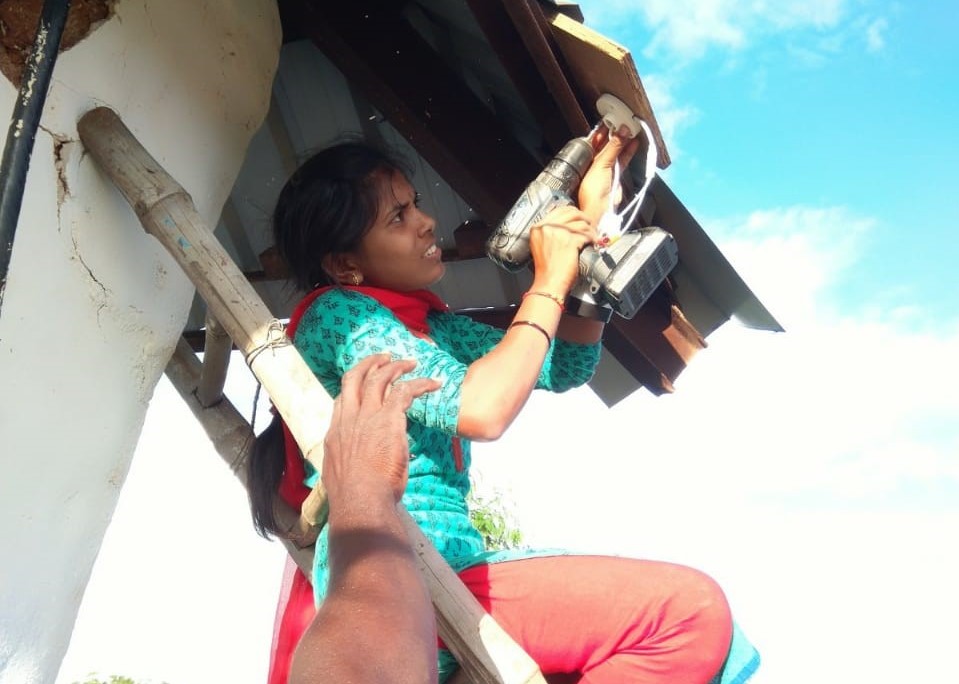
As part of the “Connecting the Unconnected: Supporting community networks and other community-based connectivity initiatives” project, 11 community network initiatives were selected in 2019 to receive catalytic intervention grants, aimed at supporting innovative, sustainable and gender-aware uses, developments and appropriations of technologies to strengthen a diverse and sustainable community network movement. Specifically, these grants aimed at exploring activities that were advancing community networks around the role of women within networks, collaborative mechanisms for dispersed communities to work together on open source tools, improved access to spectrum, local content development and technological innovation. You can find more detail on the different types of initiatives funded here.
We are sharing stories from the participating organisations about the local impacts of the work they carried out with the help of this funding. This story highlights the work carried out through a catalytic intervention grant by the Digital Empowerment Foundation in India.
Clad in an Indian saree and with fresh flowers in her hair, a 20-year-old woman goes to her village temple to seek blessings every day. From there she walks a short distance and turns on to a kacha (unpaved road) leading to ProtoVillage, a rural community campus built for and by the villagers of Hindupur, in Andhra Pradesh’s Anantapur district. Walking into the village’s digital centre, she lifts a heavy internet installation device and stands at the foot of the tower. With her saree’s pallu (loose end) tucked in, she ties the wires of the device in a way that it hangs over her shoulder like a huge purse.
Now with everything in place, she lifts her foot onto the first ledge of the tower and in a couple of swift movements reaches the top. Perched on almost the other end of the tower, she pulls up the device and starts the installation process. Putting it in place with one hand, while using the other to maintain balance, she successfully sets up the access point in the first step to connect communities.

Amruta climbing the network tower. Photo: DEF
An inspiration for many girls across villages, the courageous Talaria Amruta broke gender stereotypes and encouraged women to take up installation of wireless networks as a livelihood option.
A young woman of grit, Amruta became the first “Barefoot Woman Wireless Engineer” in Andhra Pradesh. She aimed to bring internet connectivity to the rural area so that her village had the same opportunity to grow like many others.
Watch Talaria Amruta fearlessly climbing the network tower to enable access to internet for her community:
Taking pride in her work, Amruta said, “I never thought that I would be doing such work of connecting people through internet and wireless, which further gives them livelihood opportunities and access to information.”
The Digital Empowerment Foundation (DEF), in partnership with the Connecting the Unconnected project co-created by the Association for Progressive Communications (APC) and Rhizomatica, initiated a project called “Barefoot Women Wireless Engineers”, through which women were trained in setting up and troubleshooting the nodes of the community network. As a part of this project, DEF trained 24 women, mostly young, in digital functional literacy followed by specialised training in internet and wireless networking. This not only helped bridge the digital divide, but also opened avenues for an alternate livelihood opportunity for women. With internet access, opportunities also made their way to the people of the community.

Amruta installing wireless equipment. Photo: DEF
Another woman from the community, Fauzia, was able to take her small business of selling organic soaps online as the Barefoot Engineers brought digital access to ProtoVillage. She said, “Amruta didi taught me that women can achieve anything they want, and I cannot thank her enough for bringing connectivity.”
Access to connectivity brought the villagers closer to information, opportunities and enablement. It helped them gain knowledge about government schemes, education and job opportunities, among other things. The community network has helped enhance ProtoVillage’s vision of becoming a centre for learning, practice, demonstration and dissemination of knowledge.
Now a Community Information Resource Centre (CIRC) has been set up to provide digital literacy so that people can access entitlements and benefits. The establishment of community networks in the rural area also brought nearby villages closer. With facilities in place, they come in to access the services offered at the CIRC and also learn how to set up community networks to bring about positive change in their lives as well. As of now, as many as 600 people are connected and this number is growing with each day.